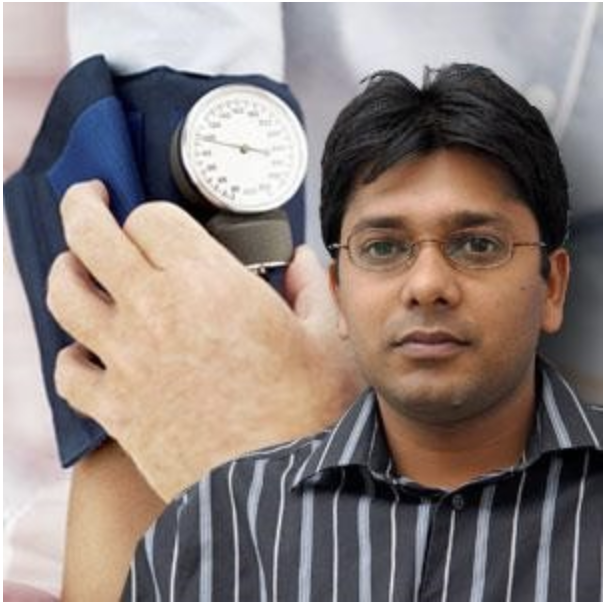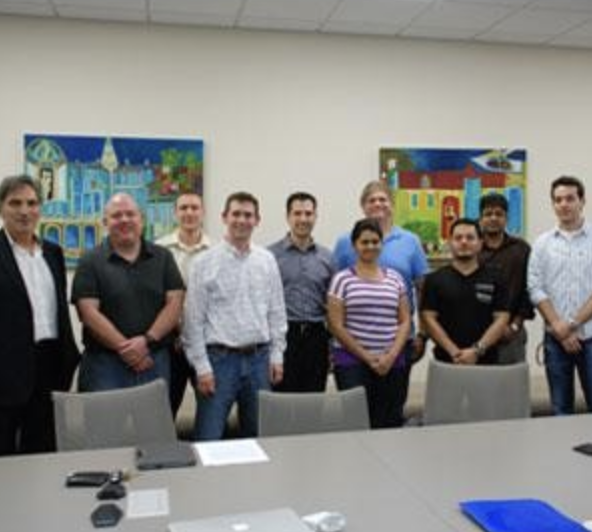success stories and accomplishments
FAU Developing Innovative Technologies to Address Challenges of Telemedicine and Home-Healthcare
 Dr. Ankur Agarwal PI of the Project
Dr. Ankur Agarwal PI of the Project
Florida Atlantic University’s department of computer and electrical engineering and computer science associate professor Ankur Agarwal, Ph.D., has received a one-year National Science Foundation (NSF) Collaborative Research: Data Correlation and Fusion for Medical Monitoring grant of $200,000 through the NSF Industry/University Cooperative Research Center (I/UCRC), Center for Advanced Knowledge Enablement (CAKE) in conjunction with Florida International University (FIU) and a matching grant from Soren Technology of an additional $200,000 to address the challenges of telemedicine and home healthcare. This research is in response to the rising healthcare costs in the United States associated with hospitalization. “We are very pleased to be a part of this unique interdisciplinary project linking the field of computer science with the field of medicine,” said Borko Furht, Ph.D., professor and director of the I/UCRC, CAKE FAU site. “This research will help improve patient healthcare options and provide innovative tools to help physicians manage patient care.”The project will cover three main areas of research ─ testing Soren Technology’s decision support system to avoid readmission, a protocol for interoperability of healthcare devices and a multimedia algorithm to optimize data streams for telemedicine.
The decision support system work will include the testing of a patient prognosis system to assess a patient’s readmission risk based on specific serious health conditions such as pneumonia or a heart condition. Once a high-risk patient has been identified Soren Technology’s existing, patented software technology will help to provide coordinated care for the patient in order to avoid readmission. Current healthcare devices are not set up to share data. The partnership will explore a new protocol compatible with IEEE 11073 Personal Health Data Standards to allow devices to communicate and transfer information through the use of smart phones.
FAU to Collaborate with Motorola Mobility and Google on New Mobile Applications
 Mororola Mobility and FAU teams start of project
Mororola Mobility and FAU teams start of project
Florida Atlantic University’s National Science Foundation Industry/University Cooperative Research Center — Center for Advanced Knowledge Enablement (I/UCRC-CAKE) has partnered with Motorola Mobility to work on a joint-research project relating to the development of state-of-the-art mobile applications for various mobile platforms. Motorola Mobility, powered by Google, has provided $175,000 for I/UCRC-CAKE membership and project funding, along with $1.3 million of equipment for mobile-system development in support of CAKE.
“We are very pleased that Mobile Mobility joined our Center, which currently has 20 industry partners and more than $1 million in memberships,” said Borko Furht, Ph.D., professor and director of the I/UCRC-CAKE FAU site. “We initiated an exciting applied joint research project, and are confident that this is just the beginning of a long-lasting and successful collaboration with Google. Ankur Agarwal, Ph.D., associate professor of computer science at FAU, serves as the principal investigator and has assembled a team of 10 graduate and undergraduate students who will be working on the project with him.
Motorola Mobility, owned by Google, operates a 1-million-square-foot space for mobile device and home business services in Plantation, Florida.
FAU Networking Research to Help Improve Road Safety
 Dr. Imad Mahgoub PI of the Project
Dr. Imad Mahgoub PI of the Project
FAU’s Department of Computer & Electrical Engineering and Computer Science professor Imad Mahgoub, Ph.D., has received a National Science Foundation (NSF) MRI Award: Development of Instrumentation to Support Multi-Technology Vehicular Networking Systems Research grant of $330,000 with a matching grant of $142,000 from FAU to develop a vehicular networking testbed and the software tools needed to quickly develop and deploy protocols and applications on the testbed as part of the NSF I/U CRC
Vehicular Networks also known as VANETs is a new technology that can provide quick, efficient means of vehicle-to-vehicle (V2V) and vehicle to infrastructure communication such as cell phone towers. V2V communication enables a vehicle to: sense hazards with a 360 degree awareness of the position of other vehicles and the threat that their vehicle presents; calculate risk; issue driver advisories or warnings; or take pre-emptive actions to avoid a crash. The technology has tremendous potential to improve roadway safety, traffic flow efficiency and convenience for drivers and passengers and is part of an envisioned Intelligent Transportation System.
One of the main research challenges to improving this technology is the lack of accurate evaluation schemes. The current research relies heavily on simulation. As new vehicular networks are ready to be released the research team will work to develop a platform to verify the networks performance in real-life environments and identify unforeseen problems. The information gathered from this research will help match the capabilities of next–generation vehicles and enable easier evaluation of complex vehicular networking systems and create a higher standard in vehicular networking research world-wide.
tkLABS, a local engineering consulting firm specializing in embedded wireless systems, will be assisting the FAU research team with tasks requiring expertise in low-level software development, electrical and mechanical design and manufacturing.